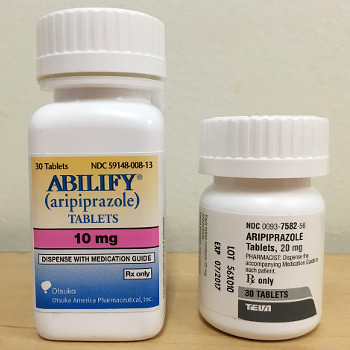
Overview
Schizophrenia is a very serious mental condition in which people interpret reality abnormally. Schizophrenia can result in a combination of delusions, hallucinations, and very disordered thinking and behavior that can impair daily living and can be disabling.
Those with schizophrenia require lifelong treatment usually involving antipsychotic medications. Treating schizophrenia early can help get symptoms under control before more serious complications develop and also helps improve the long-term outlook.
Symptoms
Schizophrenia involves a large range of problems with behavior, thinking (cognition) or emotions. Signs and symptoms can vary but will usually involve disorganized speech, hallucinations, or delusions. They will reflect an impaired ability to function.
Symptoms may include:
Hallucinations. These usually involve seeing or hearing things that do not exist. Yet, for the person with schizophrenia, they have the full impact and force of any other experience. Hallucinations can involve any of the senses, but the most common hallucination is hearing voices.
Extremely disorganized or abnormal motor behavior. This could show in a number of ways from unpredictable agitation to childlike silliness. Behavior isn’t focused on a clear goal and it can be hard to do tasks. Behavior may include inappropriate or bizarre posture, useless and excessive movement, resistance to instructions, or a complete lack of response.
Delusions. This refers to false beliefs that aren’t based in reality. For example, you may think you’re being harassed or harmed; you have exceptional fame or ability; certain comments or gestures are directed at you; a major catastrophe is about to occur; or another person is in love with you. Delusions are the most common symptom of schizophrenia.
Negative symptoms. This term refers to a reduced or lack of ability to function normally. For example, the person may appear to lack emotion, or neglect personal hygiene. Also, the person might lose interest in activities they used to like, withdraw socially, or lack the ability to experience pleasure.
Disorganized thinking (speech). Disorganized thinking is inferred from observing disorganized speech. Effective communication can be affected, and answers to questions may be partially or wholly unrelated. Rarely, speech may include putting together words that are not related into a meaningless sentence that cannot be understood, this is known as word salad.
Symptoms may vary in kind and severity over time, with periods of getting worse and better. Some symptoms may be consistently present.
For men, schizophrenia symptoms normally start in the early to mid-20s. For women, symptoms usually begin in the late 20s. It is uncommon to be diagnosed with schizophrenia if you are outside of the ages 20-45.
Causes
The definitive cause of schizophrenia is unknown, but researchers believe that a combination of brain chemistry, genetics, and environment contributes to the development of the disorder.
Issues with certain chemicals naturally occuring in the brain (such as dopamine and glutamate) might contribute to schizophrenia. Neuroimaging studies of people with schizophrenia show differences in the central nervous systems and brain structure as compared to those without schizophrenia. While researchers are uncertain about the significance of these changes, they indicate that schizophrenia is indeed a brain disease.
Diagnosis
Diagnosing schizophrenia involves ruling out other mental health problems. They will also determine that the symptoms are not due to medication, a medical condition, or substance abuse.
Diagnosing schizophrenia may include the following:
- Physical exam. This will be done to rule out other problems that may cause symptoms or check for related complications.
- Tests and screenings. These could include tests that help rule out conditions that have similar symptoms. They will also screen for drugs and alcohol. Your doctor may request an MRI or CT scan as well.
- Psychiatric evaluation. A doctor or mental health professional will check your mental status by observing your demeanor and appearance. They will also ask about moods, substance use, thoughts, potential for suicide or violence, and delusions. This will include a discussion of personal and family history.
- Diagnostic criteria for schizophrenia. A mental health professional or doctor will likely use the criteria in the Diagnostic and Statistical Manual of Mental Disorders (DSM-5), which is published by the American Psychiatric Association.
Treatment
Even when symptoms have subsided, schizophrenia requires lifelong treatment. Treatment with antipsychotic medications and psychosocial therapy will help with managing the condition. Hospitalization may be needed in some cases.
Schizophrenia requires lifelong treatment, even when symptoms have subsided. Treatment with medications and psychosocial therapy can help manage the condition. In some cases, hospitalization may be needed.
Usually a psychiatrist experienced in schizophrenia treatment will guide the treatment. The treatment team will likely include a: psychiatric nurse, psychologist, social worker, and possibly a case manager to help coordinate care. The full-team approach might be available in clinics with expertise in treating schizophrenia treatment.
Medications
Medications are the most important part of treating schizophrenia, and antipsychotic medications are the most commonly prescribed drugs. They are thought to help control symptoms by affecting dopamine which is a brain neurotransmitter.
The goal of treatment using antipsychotic medications is to manage signs and symptoms effectively using the lowest effective dose. The psychiatrist might try different drugs, different combinations, or different doses over time to help achieve the desired result. Other medications can also help like antidepressants or anti-anxiety drugs. It can take many weeks to notice an improvement in symptoms.
Because schizophrenia medications can cause very serious side effects, those with schizophrenia might be reluctant to take them. Willingness to cooperate with treatment may affect drug choice. For example, someone who is resistant to taking medications may be treated with injections instead of taking a pill.
Talk to your doctor about the benefits and side effects of any antipsychotic medications are prescribed.

Second-generation antipsychotics
These newer, second-generation antipsychotic medications are usually preferred because they pose a lower risk of serious side effects than first-generation antipsychotic medications.
Second-generation antipsychotic medications include:
- Aripiprazole (Abilify)
- Asenapine (Saphris)
- Brexpiprazole (Rexulti)
- Cariprazine (Vraylar)
- Clozapine (Clozaril)
- Iloperidone (Fanapt)
- Lurasidone (Latuda)
- Olanzapine (Zyprexa)
- Paliperidone (Invega)
- Quetiapine (Seroquel)
- Risperidone (Risperdal)
- Ziprasidone (Geodon)
First-generation antipsychotics
The following first-generation antipsychotic medications have frequent and potentially significant neurological side effects which include the possibility of developing a movement disorder that may or may not be reversible.
First-generation antipsychotic medications include:
- Chlorpromazine
- Fluphenazine
- Haloperidol
- Perphenazine
These antipsychotic medications are usually cheaper than second-generation antipsychotics, especially the generic versions which is often a big consideration for long-term treatment.
Psychosocial interventions
Once psychosis recedes, in addition to continuing the use of medication, psychological and social (psychosocial) interventions are very important. These may include:
- Social skills training. This focuses on improving communication as well as social interactions and helps to improve the ability to participate in daily activities.
- Vocational rehabilitation and supported employment. This focuses on helping people with schizophrenia find, prepare for, and keep jobs.
- Family therapy. This helps to provide support and education to families who are dealing with schizophrenia.
- Individual therapy. Psychotherapy might help to normalize though patterns. Also, learning to identify early warning signs of relapse and cope with stress can help people with schizophrenia manage their illness.
Most people with schizophrenia require some kind of daily living support. Many communities have resources to help people who have schizophrenia with jobs, self-help groups, housing, and crisis situations. A case manager or someone on the treatment team will be able to help find resources. With appropriate treatment, most people with schizophrenia can effectively manage their illness.
Hospitalization
During crisis periods or times where the symptoms become more severe, hospitalization may be necessary to ensure proper nutrition, basic hygiene, safety, and adequate sleep.
Electroconvulsive therapy
For adults with schizophrenia who don’t respond well to drug therapy, electroconvulsive therapy (ECT) might be considered. ECT can be helpful for someone who also suffers from depression.
This is not a complete summary of information about schizophrenia and is not to take the place of a diagnosis or professional medical advice. Always talk to your doctor if you have questions about your medications or medical conditions.


